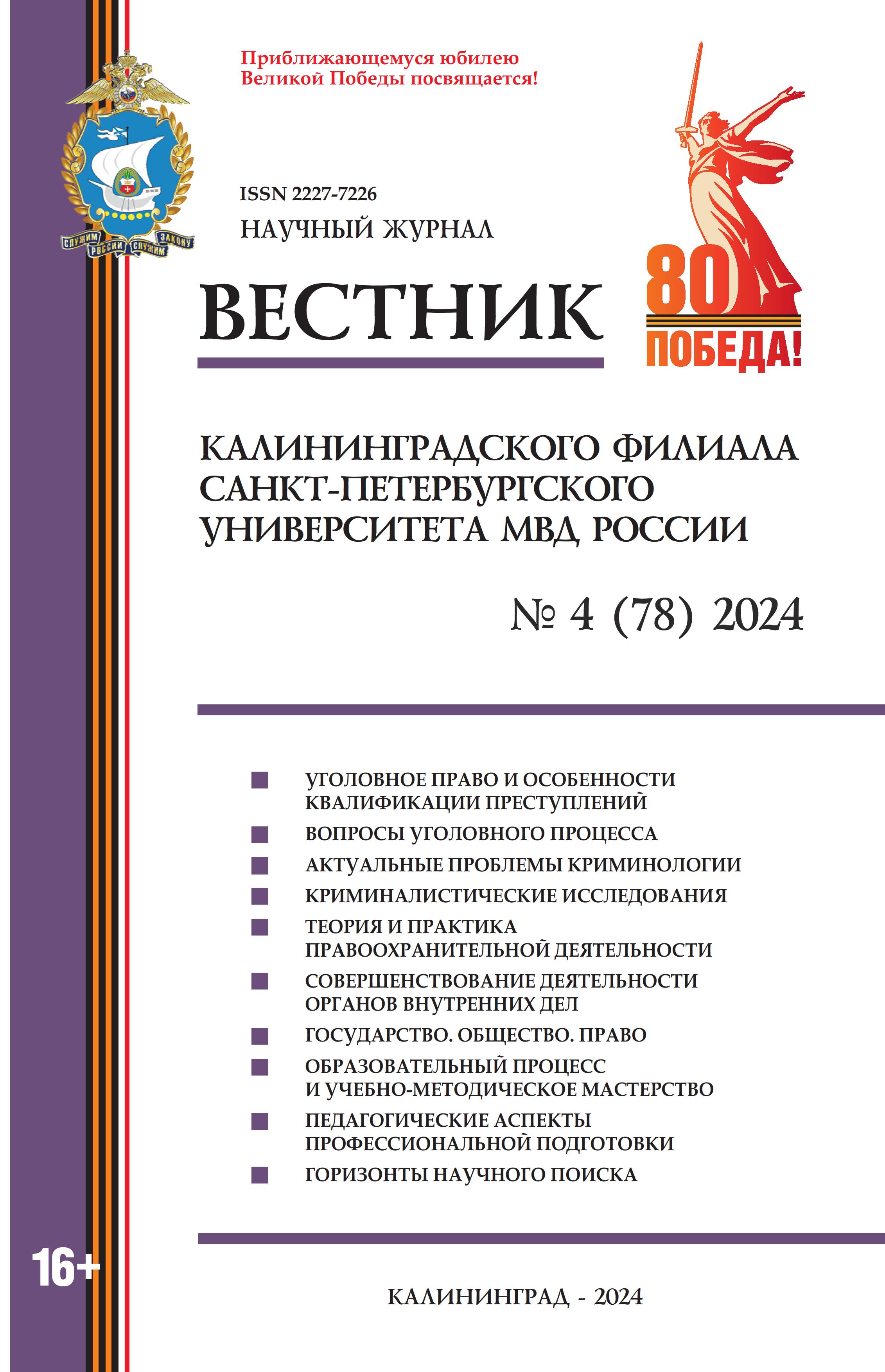Russian Federation
Introduction. There are many risks in the environmental sphere. The issues of the relationship between the concepts of «environmental risk» and «criminal risk», the specifics of these risks in the environmental sphere and the possibilities of managing them require separate study. In the study, the results of which are presented in the article, the author set the following objectives: to consider the concept of «risk»; to analyze the most common classifications of risks and to substantiate the one that is most relevant to the research problems; to study the concepts of «criminal risk» and «environmental risk», to identify their relationship; to consider the specifics of managing criminal and environmental risks. Methods. The study used general and specific methods: system-structural, formal-logical, comparative-legal. Results. The study of the specifics of criminal and environmental risks should be based on a single conceptual apparatus. There are two main approaches to understanding risk – realistic and socio-cultural. The realistic approach, which allows for the normalization of risks, seems to be the most promising for practice-oriented research. The socio-cultural approach is valuable in terms of forming systemic ideas about the concept of risk, allowing us to study the nature of this phenomenon and the social processes associated with it. Criminal and environmental risks should be identified in accordance with the classification based on the sphere of risk manifestation. Criminal and environmental risks should be understood as the probability of events that may result in harm (of varying scale and severity) to legally protected interests and values, criminological and environmental safety.
Risk, criminal risk, environmental risk, risk assessment, risk management, criminological safety, environmental safety.








